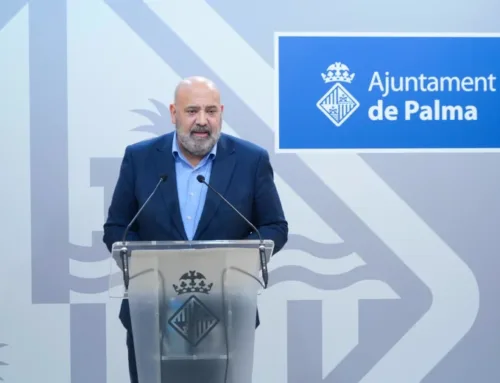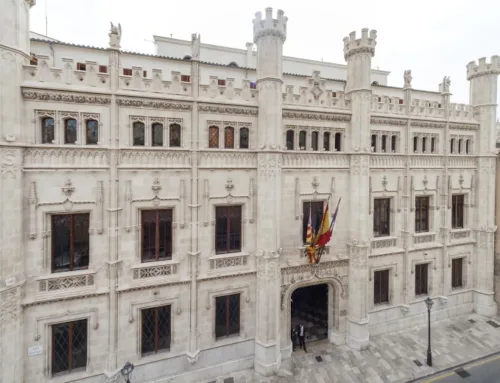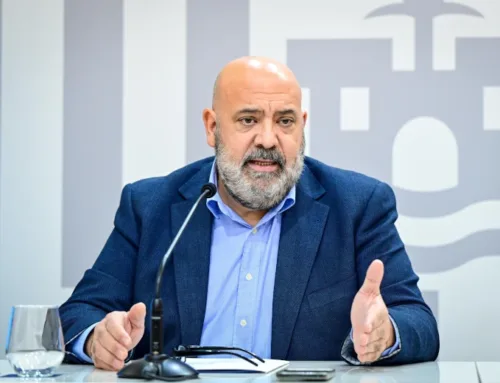The candidate of the Popular Party of the Balearic Islands, Marga Prohens, has detailed the first measures of the new Government after the programme agreement sealed with Vox that gives her the presidency of the community. After the investiture debate and the parties’ replies tomorrow, she will take office on Friday 7 July
In her investiture speech, Marga Prohens reiterated her commitment to a drastic reduction in taxes: among these, the reduction of the autonomous section of personal income tax and taxes for the purchase of the first home, the elimination of the tax on donations and inheritance, support for maternity with deductions for births, and the approval of a new deduction for the cost of care for the over-65s, among others. The debate in Parliament took place today at 10:00 am. Tomorrow, 24 hours later, the rest of the parties with parliamentary representation will reply.
With regard to housing, Prohens has reiterated that she will not apply the state Housing Law and has explained that she is committed to acting only on supply, with the collaboration of private initiative. She will also launch a plan to reform the Balearic housing law and establish squatting as a serious offence, as well as the creation of an Office for the Defence of Squatting Victims.
The PP will repeal the moratorium on tourist accommodation

Prohens and the rest of the PP MPs attend the investiture session in the Balearic Parliament. Photo: PP.
According to Prohens during his investiture speech, PP will repeal the moratorium on tourist accommodation in order to “stop” the path towards degrowth. The aim is to return to the limits established by the 2012 tourism law, with a pool of places in the hands of the councils that “provided legal certainty and room for free competition”.
Conselleria del Mar
The candidate for the Govern has confirmed that she will create a Department of the Sea which will take over the powers of Costas, which were transferred on Saturday, and which will be the interlocutor with the nautical sector, the recreational sector and the ports, as well as being responsible for policies affecting the coast and the coastline. The aim is to approve a Balearic Coastal Law to guarantee the compatibility of sustainable economic activities already in existence and necessarily linked to the coast, such as beach restaurants and beach bars.
Health and education
Prohens has focused on the main deficiencies in the public health system due to the shortage of health professionals in both primary care and hospital care. She proposes to strengthen the budget of the Regional Ministry of Health and to carry out an audit of both the waiting lists and the spending of the Regional Ministry. The candidate also proposes a strategy for attracting and retaining professionals, including an insularity supplement to compensate for the socio-economic realities of each of the islands, conciliation plans, reducing bureaucracy in their tasks, reactivating the professional career, tax incentives and eliminating “dissuasive” requirements such as the Catalan language, among other actions.
The ‘popular’ leader is committed to suspending the current application of the LOMLOE education law, defending the free choice of centre, eliminating the current zoning and moving towards a single school zone in Palma; guaranteeing funding for quality public education, also including the subsidised network; “waterproofing” classrooms from “any temptation of ideological indoctrination” and the free choice of language in education.
With regard to the Ley de solo sí es sí and the Ley Trans, she announced that they would demand its repeal, although she assured that “not a single step backwards will be taken” in achieving effective equality in all areas between men and women, nor in protecting women “from the scourge of violence against women or male chauvinist violence”. Sexual violence will also be combated, as well as exploitation and trafficking.
Convenio de carreteras
PP will call on the government to recover both the road agreements for the island councils and the railway agreement to finance new train connections. In addition, they will demand from the central government an improvement in the compensation for residence, a dignified insularity, and guarantee the number of National Police and Civil Guard officers in the Balearic Islands.






Leave A Comment